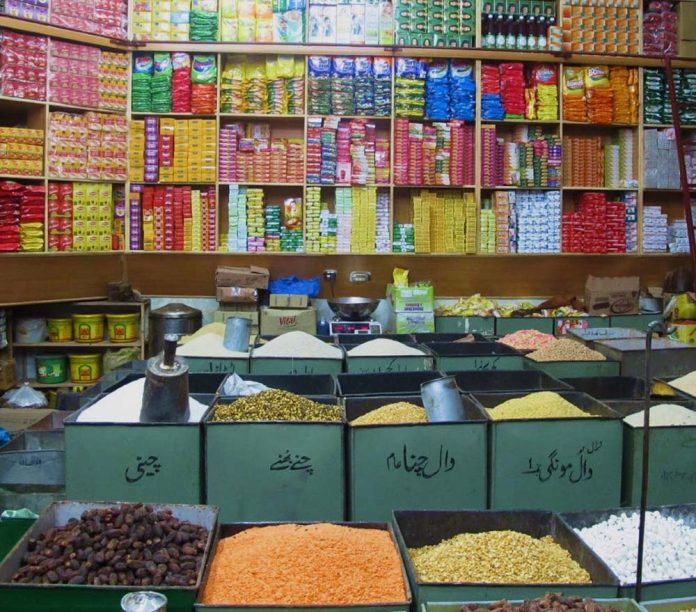Rabia Bibi* checks the prices of different products in a store. Her face is forlorn, and her forehead is knotted with worry. “Everything is so expensive. I must decide whether to buy flour or milk as I cannot purchase both. It is worse now in Ramadan with prices shooting up and the children expect something special to break their fast”, she said in a broken voice.
Rabia’s case is one among millions of others trying to make ends meet in the midst of an economic maelstrom. Inflation in March soared to 47% year-over-year and the prices of basic commodities such as wheat rose by 120%. This has led to scenes of violent riots at charity drives where the people who can no longer afford basic necessities lined up to receive free flour. Since Ramadan started at least 23 people have died in stampedes at four different flour distribution points.
Among all this turmoil, millions of Pakistanis edge closer to an abyss. For the several months Pakistanis have seen their incomes unable to match the inflationary pressures. “Five years ago I used to earn PKR 30,000 and was able to comfortably support my family,” says Mohammad Ali*, an engineer in Lahore. “Today I make over PKR 100,000 and am unable to meet household expenses”.
In this dire situation people are looking to stretch their monthly budgets to as far as they can go. Bachat Bazaar (Discount Market) in different cities see throngs of thousands and many people are changing their purchasing patterns, buying in bulk or as a group whenever they can. Another option is to purchase commodities through a smartphone application.
DealCart, a social e-commerce platform in Karachi, offers a technology solution of “Group Buying” which allows consumers to purchase groceries online at a discounted price to those in the market. DealCart is 24% cheaper compared to general stores for household food staples including flour and lentils, 18% cheaper on oil and ghee, and 9% cheaper on dairy products. Considering the weekly inflation on these essentials DealCart offers a much- needed value product to any consumer. The company provides a choice to consumers to choose from more than 1,000 products. These include staples and daily grocery products like rice, flour, spices, and oil to household goods such as towels, tissues, and bedsheets.
The company has also expanded its variety of goods and introduced newer categories like mobile accessories and personal care to cater to everyone’s needs. The model is set around the needs of the Pakistani people; in a market where no competitor delivers products free of cost, DealCart has no delivery charges, allowing users to save on groceries as well as save on petrol and delivery costs. Consequently, people can buy their groceries with ease at the push of a few buttons while saving their hard-earned money.
“I first started using DealCart’s application two months ago,” said Sana Ahmed*, a housewife from Gulshan-e-Iqbal. “At first I simply liked the option of ordering online from an easy-to-use application but since the items are consistently less expensive than even mainstream stores it is now my main source of household items,” she said. Another user Bilal Mustafa* who works in a bank commented, “Ramadan means higher prices on just about everything. This year I downloaded DealCart’s app when they advertised that they are less expensive than neighborhood stores. I was skeptical about their claim but am pleasantly surprised that’s its true and now order almost exclusively from it because of the savings on every order.”
These words of the people signify how distressed they are with the current situation of the economy and how DealCart is supporting them to face this issue. While Pakistan’s consumer price inflation continues to jump DealCart is focusing on providing heavy discounts of up to 45% on daily groceries to increase the buying power of households. Through the DealCart application, consumers can save money and spend their saved income on healthcare and education and bring more value into their monthly spending budget. In this difficult economy every bit of saving helps.


